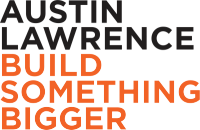As B2B SaaS companies seek to scale and increase their enterprise value, it’s essential to recognize the impact professional services (PS) can have on this trajectory.
While professional services—custom implementations, training, and consulting—can be a valuable revenue stream and a way to ensure customer success, they can also impose significant limitations on growth and scalability. For small SaaS firms, in particular, these challenges can constrain their potential to become high-growth companies.
Difficulty in Scaling Professional Services
While services can be a bridge to revenue early on, they don’t scale like SaaS does. Unlike the software product itself, which can be replicated and delivered at near-zero marginal cost, professional services require employees’ direct time and expertise.
If a company wants to take on more business or larger projects, it’ll need to find and train more skilled professionals who understand both the SaaS product and the client’s specific needs. This can lead to delays in project delivery, a strain on resources, and, ultimately, customer dissatisfaction if the services team cannot meet demand.
And when sales are heavily dependent on professional services, the business's ability to grow becomes tied to the capacity of that team. The growth of the SaaS product then becomes secondary, resulting in missed opportunities for scaling up the core product, along with constrained growth and reduced valuation.
Investors typically prefer businesses with high gross margins and a recurring revenue model, which means a SaaS firm that is heavily reliant on professional services may be less attractive to potential buyers or investors.
Founder’s Focus on Services as a Subject Matter Expert (SME)
For many SaaS founders, professional services can be particularly appealing because they allow the founder to leverage their subject matter expertise (SME) and work closely with customers. This can create a sense of satisfaction and fulfillment as the founder helps clients solve complex problems with their expertise. However, this focus on professional services often comes at a cost to the broader growth strategy.
When a founder spends a significant amount of time on services delivery, they are taking time away from other critical tasks that are essential for scaling a SaaS business. These tasks include product development, fundraising, building strategic partnerships, and creating a robust go-to-market strategy.
Essentially, the founder’s time is one of the most valuable resources in a startup, and when it is consumed by client projects, the company’s ability to grow suffers.
Early on, it's tempting for founders to be involved in everything, but the real leverage comes when they focus on building systems and processes that scale without them. When the founder is tied up with professional services, they lose the leverage that comes from building scalable processes, ultimately slowing the company’s growth trajectory.
The Impact on Enterprise Value
Professional services can create a perception that the company is not purely a SaaS firm, leading investors to question the scalability of the business. Additionally, professional services tend to have lower gross margins compared to software, which can pull down the company’s overall profitability metrics.
For small SaaS companies looking to attract venture capital or strategic buyers, this can be a critical disadvantage.
In a valuation scenario, SaaS companies with high-margin, recurring software revenue will typically be valued much higher than those with significant professional services components.
Investors are looking for high-growth companies with strong recurring revenue models that don’t rely heavily on human resources for scale. If professional services make up a large portion of the revenue, it can reduce the company's attractiveness and ultimately lower its valuation.
Finding the Right Balance
It’s important to note that professional services aren’t inherently bad for SaaS companies. In fact, they can be a crucial part of ensuring customer success, particularly in the early stages of a company’s life when customers need more hands-on guidance and the product is far from mature.
However, it’s crucial to find the right balance and ensure that professional services don’t become a crutch that hinders scalability.
One approach is to gradually shift from custom services to standardized offerings, such as pre-packaged training or implementation programs, which can be delivered more efficiently. Additionally, investing in customer success teams that focus on enabling customers to self-serve within the product can reduce the reliance on professional services over time.
Building a Partner Network can Accelerate Growth and Enhance Enterprise Value
One effective way to overcome the limitations imposed by professional services is to build a robust partner network.
A partner network can accelerate sales growth while taking over the responsibility for customer onboarding and first-level support. This approach helps SaaS companies scale more effectively without being constrained by the internal capacity of the professional services team.
By collaborating with partners with expertise in the problems their software solves, SaaS companies can:
- Expand Sales Reach: Partners can act as an extension of the sales team, helping penetrate new markets or industry verticals that the SaaS company might struggle to reach on its own.
- Streamline Onboarding: With partners handling the heavy lifting of customer onboarding, internal resources can focus on product development and other high-impact activities.
- Enhance Customer Experience: A network of skilled partners can deliver faster and more personalized support to customers, ensuring a positive initial experience with the software.
- Increase Recurring Revenue: By focusing internal efforts on product development and increasing customer lifetime value and by allowing partners to manage service delivery, the SaaS company can concentrate on building out its core recurring revenue model and increase its enterprise value and attractiveness to potential investors or lenders.
This strategy not only addresses the challenges of scaling professional services but also enhances the SaaS company’s value proposition by ensuring that customers receive the support they need without putting a strain on internal resources.
Looking ahead…
For small SaaS companies aiming to scale, a heavy reliance on professional services can create challenges that limit growth and enterprise value.
The difficulty in scaling a services team, the capacity limits imposed by services on sales growth, the founder’s focus on services delivery, and the absence of a partner network can all act as barriers to achieving the rapid growth that SaaS investors and buyers are looking for.
By recognizing these challenges and making strategic shifts, SaaS founders can position their companies for greater scalability, profitability, and market value.
Navigating this balance isn’t easy, but with a clear strategy, a strong partner network, and a focus on building scalable solutions, SaaS companies can unlock new levels of growth and maximize their enterprise value.
Want to discuss your SaaS company’s business model?







